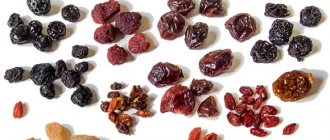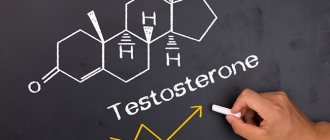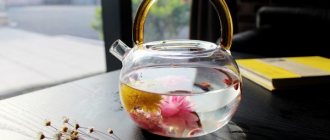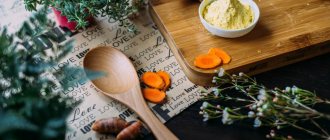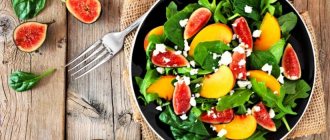Immunity is a complex structure built by the human body to protect against germs and viruses. Immunity is not static. It can weaken, rise and adapt to threats. Poor lifestyle, excessive stress, cold climate and many other factors reduce immune protection.
There are proven ways to quickly boost an adult’s immunity at home. When used to boost immunity in adults, it will take a minimum of time.
Raising immunity with folk remedies is a universal method. Often, in case of minor malfunctions in the functioning of the body, traditional medicine is enough to stabilize health, and the use of pharmaceutical drugs is not necessary.
Sleep more
A healthy adult body requires about 7-9 hours daily to sleep, children - about 10-13 hours.
Systematic lack of sleep (for 2 weeks or more) leads to a decrease in the efficiency of the immune system by at least 30%. This circumstance is responsible for the fact that people recover quickly after a full night’s sleep.
One scientific study has proven that partial deprivation of sleep at night leads to a decrease in immune response reactions, a decrease in the number of natural killer cells and the production of interleukin-2. Moreover, the effects are irreversible even when taking immunostimulants.
With a sleep duration of less than 7 hours, a decrease in the human body’s resistance to colds (viral) and bacterial diseases is observed. The incidence of such pathologies increases 3 times.
Healthy sleep ensures adequate functioning of all cells of the immune system and increases the body's resistance to infections.
Tinctures
The use of tinctures and infusions is another method of stabilizing the health of an adult at home using folk remedies. Proven recipes:
- Chicory root tincture. Pour 20 g of roots with 100 ml of alcohol. Leave for 5 days. Use 20-25 drops morning and evening.
- Mint infusion. Chop a small bunch of mint leaves and pour boiling water over it. After cooling, strain. Add garlic (1 clove), honey (1 tsp) and lemon juice to 25 g of infusion. Drink at night.
- Infusion of garlic and milk. Heat 0.5 liters of milk over low heat, add 1.5 heads of unpeeled garlic and cook for 10-15 minutes. Then leave for 3 hours in a warm place, after covering the container. Use 25 ml 30 minutes before each meal. Keep cool.
There are other healthy drinks for immunity. Preparation:
- Nettle infusion. Pour boiling water over the dried leaves of the plant in the proportion of 1 tbsp. raw materials per 1 glass of liquid. Brew for 10 minutes. Drink the infusion 3 times a day, 1/3 cup.
- A glass of orange juice, 0.5 glasses of lemon juice and 20 g of fresh Kalanchoe juice. Drink once a day for 30 days.
- Organize a water bath. Steam a pinch of St. John's wort leaves (about 1 tbsp) on it. Pour in 1 glass of warm milk and bring to a boil. Strain. Add a little cinnamon and honey to taste. Leave for 30 minutes. 1 tbsp. Use the resulting infusion with tea.
Infusions are used to prevent diseases and already at the stage when medicinal assistance to the immune system is necessary.
Exercise regularly
Scientists from the UK have proven that the “aging” of the immune system directly depends on the degree and volume of physical activity. With active exercise (150-300 minutes per week) and correct heart rate (65-80% of peak), the rate of “fading” of immunity is minimal. It was also determined that the number of T-link cells directly depends on a person’s fitness.
With the help of physical exercise, you can get rid of toxic metabolic products circulating in the blood, which has a beneficial effect on the functioning of the immune system and ensures the prevention of cancer, autoimmune and allergic disorders.
It should also be noted that physical activity improves the condition of the heart and cardiovascular system as a whole, reduces the incidence of chronic pathologies, and improves the trophism of all organs and tissues.
Persons under 17 years of age need to exercise for at least 60 minutes 3-5 times a week, representatives of the older generation - at least 2.5 hours 1-2 times a week. For older people (over 65 years old), low-intensity aerobic exercise (brisk walking) is preferable.
Regular physical activity reduces the intensity of age-related decline in immunity and helps prevent infectious and inflammatory disorders.
Don't abuse alcohol
According to a review of the scientific literature, excessive ethanol intake significantly increases the risk of developing infectious and inflammatory diseases (especially of the respiratory system), disrupts the adequate functioning of protective barriers (skin and mucous membranes) and destroys cells of the immune system.
The processes of lymphocyte synthesis also slow down due to the development of protein deficiency.
Ethanol reduces the intensity of the formation of immunoglobulins of classes G and M. Alcohol also prevents adequate differentiation of T- and B-link cells.
Alcoholic drinks are not always harmful to the body. According to Harvard Medical School, a dose equal to 15 ml of pure ethanol per day is considered safe for women, 30 ml for men.
It is recommended to limit the consumption of alcoholic beverages as much as possible, since alcohol has been proven to disrupt the normal functioning of the immune system.
How it works
The immune system includes a number of organs. They are divided into central and peripheral. The central ones include the thymus gland and bone marrow. Peripheral – these are the lymphatic follicles of the gastrointestinal tract, lymph nodes, and spleen. It is these organs that secrete cells responsible for the antigenic composition and constancy of the body. The main cells of the immune system (IS), leukocytes, mature in the central organs.
T-lymphocytes are of great importance in the immune process. They are produced in the bone marrow and act as active protection against pathogenic effects. A decrease or increase in the number of T-lymphocytes in the blood can be detected by laboratory analysis and is regarded as a pathology requiring medical attention.
T lymphocytes provide the cellular immune response. They perform two functions: they help B lymphocytes recognize foreign antigens, and after activating the immune response, they themselves are able to dissolve and destroy antigens.
In addition to the cellular immune response, there is also a humoral immune response. It is carried out through intercellular fluid, lymph, blood. In this process, the main role is played by antibodies - specific proteins synthesized by B lymphocytes. Antibodies or immunoglobulins bind antigens, affecting their activity. Immunoglobulins (Ig) are divided into 5 classes - IgG, IgM, IgA, IgD and IgE.
IgG belongs to late antibodies and performs the following functions:
· increase the intensity of absorption of foreign elements;
· actively participate in the immune reaction process;
· during fetal maturation, they penetrate the placenta and become its natural immunity.
IgM are produced immediately upon penetration of dangerous microorganisms and carry out the following:
· stimulate the process of capture and absorption of solid particles by cells by phagocytes;
· are the first to combine in the baby’s body.
IgA protects mucous membranes from attacks by foreign particles, neutralizes bacterial toxins and viruses.
IgDs function as antigen recognition receptors on the surface of B lymphocytes.
IgE occurs during an allergic reaction in the body and does the following:
· activate leukocytes involved in allergic processes (basophils);
· provide protection against parasites;
· contribute to the manifestation of an allergic response and anaphylactic shock.
Stop smoking
It has been proven that tobacco smoke harms all organs and tissues of the human body, increases the incidence of cardiovascular complications, and also impairs the immune system.
Nicotine, which enters the body when smoking, binds to hemoglobin, which leads to disruption of the oxygen supply to cells.
In addition, tobacco smoke contains a colossal amount of carcinogens and toxic tars, which directly suppress the immune response and provoke the development of allergic processes and autoimmune diseases.
Smoking is the easiest way to “kill” not only the immune system, but also the body as a whole.
Peace of mind
Modern people are often exposed to stress, the reason for this is conflict situations in the workplace, and not everyone’s home life brings only pleasure. If depression seems like a completely harmless phenomenon to you, then know that all these factors greatly reduce your immunity and simply drive you into the risk zone of colds. To strengthen your defenses, it is very important to maintain physical health, but do not forget about your psychological state.
- Scientists have already proven that constant lack of sleep increases the risk of disease by more than 10%, so try to get enough sleep at least on weekends.
- Laughter and positive emotions also help replenish the lack of energy for the immune system; get together and communicate with friends more often and find more reasons to laugh, for example, read jokes, watch funny videos on the Internet and comedies.
- Art therapy is a type of activity that helps remove negative energy from a person. Everyone will be able to choose an activity that suits them, for example, writing poetry, singing, drawing, embroidery and knitting, as well as playing musical instruments.
- The easiest way to cheer up is to change the decor in the house, that is, swap furniture or buy something new.
Adjust your diet
In the previous article, we already talked about the importance of diet for immune function.
There are a sufficient number of foods that are beneficial for the immune system, which have a positive effect on the local and general defense mechanisms of the body.
Below we briefly describe the list of the most useful substances:
- Protein low-fat food. Proteins are necessary for building cells of the immune system. With protein deficiency, a uniform deficiency of all components develops. Optimal sources of proteins are chicken and turkey breasts, seafood, eggs (whites), legumes (beans). The protein norm per day is about 1.6 g/kg of weight.
- Beta carotene. Helps accelerate the production of lymphocytes, reduces the risk of developing cancer. Contained in the following products: potatoes, carrots, melon, apricots, spinach.
- Selenium and zinc. They increase the production of natural killer cells and T-cells and have a positive effect on the red bone marrow. Selenium and zinc are found in large quantities in seafood (crabs, tuna, lobster), as well as in legumes and beef. The products described are recommended for ongoing use by the US National Institutes of Health. It is noteworthy that when zinc and selenium are combined, a mutual enhancement of their effects is observed.
- Fresh fruits and vegetables. Many scientific experiments have been able to prove the immunomodulatory and direct antibacterial properties of vegetables and fruits. Preferred are zucchini, turnips, green apples, citrus fruits (oranges, grapefruits, lemons), bananas, peaches, plums, grapes and black currants.
- Garlic. The vegetable contains allicin, which destroys many harmful microorganisms in the intestinal lumen, as well as in the circulating blood. Garlic also improves immunity (by activating the synthesis of white blood cells), prevents the development of cancer diseases, and slows down aging. The effects are scientifically proven.
Proper nutrition plays a major role in maintaining immunity. The diet should be balanced and varied.
What is the immune system
Immunity is a protective function of the body, repelling attacks from internal and external antigens, infectious agents, ensuring the constancy of the internal environment. The immune system works at the genetic level, aimed at recognizing and removing foreign cells and substances, maintaining the biological individuality and integrity of the body.
Substances and agents foreign to the body are called antigens. The immune system detects and destroys them. Thanks to this, a person can exist surrounded by many microorganisms that are quite dangerous to health. Harmful microorganisms reproduce at an incredible rate. Under favorable conditions, one bacterium per day turns into several trillions of its own kind. Immune defense stops the uncontrolled growth of bacteria.
One of the main tools of the immune system is the barrier of the skin and mucous membranes. They release substances that completely inactivate or partially reduce the activity of harmful microorganisms. In general, the immune system is a complex of cells and organs that recognize and destroy viruses, bacteria, and parasites.
Some infections, once entering the body, cause a stable, lifelong immune response. For example, having had rubella, measles or chickenpox once, a person will no longer become ill with this disease, even with direct contact with the infection. Such diseases are recorded by memory cells, which subsequently prevent their development.
The immune system is genetically inherited. During the intrauterine development of the fetus, it recognizes and remembers the tissues present in the body, and only considers them as its own in the future.
Take your vitamins
Vitamins regulate all metabolic processes in the body and also participate in maintaining immunity.
It is recommended to use specialized food supplements (AlfaVit, Supradin, etc.) or obtain useful biologically active substances from food.
The following vitamins are especially important:
- Vitamin C. Increases the production of white and red blood cells at the level of red bone marrow. This component should be added to food regularly, since the body is not able to accumulate and synthesize it. The maximum amount of vitamin C is found in citrus fruits (lemons, oranges), strawberries, rose hips, spinach and cabbage. It has been proven that vitamin C reduces the severity of clinical symptoms during acute respiratory viral infections.
- Vitamin D. Particularly effective against productive psycho-emotional disorders and depression, which quickly disrupt the functioning of circadian rhythms (for example, sleep) and disrupt the functioning of the immune system. Foods rich in vitamin D: trout, cod, sturgeon, eggs.
- Vitamin A. Has pronounced antioxidant properties. Accelerates the healing of any wounds, and also ensures the prevention of microbial contamination. Some scientific works demonstrate that vitamin A slows down the destruction of antibodies during infectious and inflammatory disorders. Vitamin A is found in carrots, broccoli, red peppers, pumpkin, melon, potatoes, and apples.
Regular intake of vitamins is necessary to maintain immunity and prevent viral diseases (especially ARVI and influenza).
Tocopherol, or vitamin E
An effective way to get your daily dose of tocopherol is to eat seeds, nuts and vegetable oils daily. But the need for the vitamin is enhanced by the large amount of polyunsaturated fatty acids in the diet, which are found in sea fish and seafood.
Strengthening immune function with tocopherol occurs by increasing the antioxidant protection of cell membranes. It enhances the body's ability to resist the destructive effects of harmful environmental factors and viruses. This vitamin helps increase the production of antibodies and also blocks the proliferation of tumor cells. Most often, its effect is enhanced by ascorbic acid and retinol, which together form an antioxidant complex.
Eat foods with probiotics
Probiotics are foods that contain live beneficial microorganisms.
Probiotics create conditions for adequate functioning of the gastrointestinal tract and increase the immunity of the entire body, with an impact on all stages of the functioning of the immune system.
With the systematic inclusion of probiotics in the diet, the incidence of infectious diseases is significantly reduced, and they occur predominantly in a mild form.
Yoghurt, kefir and other fermented milk products are extremely rich in probiotics. However, not all fermented milk products contain live bifidobacteria; this is important to consider. An example is Activia brand yogurt. It has been proven that a number of microorganisms in this yogurt remain vital even in the rectum (passes through the entire digestive tube).
In addition to dairy products, sauerkraut, pickled cucumbers, and kombucha-based drinks are rich in probiotics.
An alternative option for using probiotics is to take special medications containing bacterial cultures (for example, Linex, Acipol, Hilak, etc.). They are indicated for the treatment of intestinal dysbiosis resulting from poor diet or after prolonged use of antibiotics.
Probiotics are necessary to maintain adequate functioning of the digestive tract, strengthen the immune system and reduce the incidence of infectious pathologies.
Expose yourself to sunlight more often
Sunlight has been proven to improve mood, prevent stress and depressive disorders, which inhibit immune responses.
In addition, when exposed to sunlight, the human body produces vitamin D. One study confirmed that increased synthesis of vitamin D improves the body's resistance to influenza A, especially in children.
To achieve the effect, insolation lasting about 15 minutes in summer and 1-2 hours in winter is enough.
Sunlight helps prevent immunodeficiency by improving the emotional background and producing vitamin D.
Spices that strengthen and enhance immunity
You can increase immunity not only with medications. Gourmets can achieve this goal by using their favorite spices in cooking.
Ginger has an antipyretic and analgesic effect . Prevents the development of inflammatory processes and pathogenic bacteria. Traditional medicine uses this seasoning to treat digestive diseases in both children and adults. Ginger can relieve symptoms of toxicosis in pregnant women.
Rosemary is a powerful antioxidant that has an additional antifungal effect. Used fresh and dry. Studies of this plant have revealed substances in its composition that prevent the development of stroke and other brain diseases. To increase immunity during an epidemic of colds, you need to consume at least 4 g of fresh rosemary.
Rosemary is a powerful antioxidant that has an additional antifungal effect. It will help boost immunity against frequent colds.
The most accessible and well-known spice that strengthens the immune system is garlic. It contains more than 100 chemicals that have a beneficial effect on the human body. During the winter months, it is recommended to eat at least 1 clove of garlic.
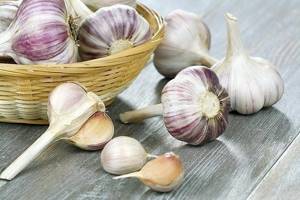
This will be enough to fight infections and reduce the duration of colds. Garlic has been clinically proven to have more powerful therapeutic effects than most medications.
Drink immunomodulatory compounds
The following plants have been proven to have immunomodulatory properties:
- Eleutherococcus. It not only activates the central parts of the nervous system, but also increases the functioning of barrier tissues several times.
- Ginseng. Many studies have demonstrated that ginseng can enhance general immunity, as well as improve the condition during viral infections, accelerate the ability of macrophages and natural killer cells to phagocytose.
- Astragalus. The plant activates the maturation and subsequent differentiation of cells of the immune system, reduces the incidence of infectious pathologies.
- Echinacea. Effective for eliminating symptoms of respiratory infections and generally improving immunity.
Most immunogenic preparations can be purchased at pharmacies in the form of dry herbal raw materials or finished dosage forms (tinctures).
The use of herbal preparations can have a positive effect on the body's resistance to pathogens of infectious diseases.
Prices for tablets to boost immunity for adults
PROTECT YOUR BODY FROM FLU AND ARVI
25 medicinal herbs and 6 vitamins will strengthen the immune system and provide protection against viruses
Buy on promotion
Pharmacological companies have made great strides forward; the choice of groups and names of drugs to boost immunity is simply enormous. In pharmacies you can find drugs that have been used in medicine for more than a thousand years, as well as fashionable new products that are widely advertised during flu and cold seasons. They are divided into several types, let's look at each in more detail.
Depending on the type of medicine and manufacturer, prices can vary greatly. For comparison, the table shows affordable medications of various groups.
| Name | Price, rub. |
| Ascorbic acid | 40 |
| Cycloferon | 180 |
| Immunal | 342 |
| Echinacea Vitamin C | 1000 |
| Echinacea | 250 |
| Complivit | 190 |
| Amiksin | 585 |
| Lavomax | 778 |
| Alphabet | 300 |
| Multi-tabs | 400 |
| Vitrum | 430 |
Maintain good hygiene
Basic rules of hygiene help prevent the development of infectious and inflammatory diseases, the course of which is not only harmful to the entire body, but also negatively affects the immune system.
The following recommendations must be followed:
- Regular hand washing after coming from outside, shaking hands, using the toilet, before and after preparing food. After contact with animals and cleaning, the skin should be additionally treated with antiseptic solutions. Clinical studies have proven the effectiveness of this method.
- Brushing your teeth 2 or more times a day. With prolonged presence of microbes in the oral cavity, the formation of caries increases. Foci of chronic infection always negatively affect other body systems.
- Taking a shower every day. Physiological folds and hair constantly contain a colossal number of microorganisms, which are responsible not only for the presence of an unpleasant odor, but also for the appearance of local infectious processes (in the skin and subcutaneous fat). Regional damage can always become systemic!
Compliance with the rules of personal hygiene is the basis for the correct functioning of local barriers, as well as the functioning of the immune system as a whole.
What to avoid
Factors that reduce immunity include:
- Poor environmental conditions. The content of heavy metal salts and other toxic compounds in the air causes chronic inflammation in the upper parts of the respiratory system and can lead to the development of autoimmune and allergic (bronchial asthma) pathologies.
- Insufficient or excessive insolation. A short exposure to sunlight leads to suppression of the emotional background and a decrease in the production of vitamin D, which a person receives from food in negligible quantities. But with an excess of ultraviolet radiation, destruction of cells of the immune system and the appearance of skin cancer pathologies are observed. The norm should be observed (15-30 minutes a day in summer and 1-2 hours in winter).
- Stress. Constant psycho-emotional overload, depression and other disorders of the central nervous system contribute to increased production of cortisol, a hormone that is a “killer” of immune system cells.
- Low sleep duration. When sleeping less than 7 hours, the incidence of infectious pathologies increases several times.
- Having bad habits. Smoking, alcohol, drugs. These factors affect almost all mechanisms of the immune system, leading to their suppression, and also have a direct cytotoxic effect.
- Excessive physical activity. Failure to comply with the activity regime is fraught with the development of fatigue, the effect of which is comparable to the influence of a negative psycho-emotional background.
- Poor nutrition. A lack of the foods described above in the article in the diet will inevitably lead to a lack of valuable amino acids, minerals and vitamins, which are important for the full synthesis and subsequent maturation of leukocytes and other cells.
- Sedentary lifestyle. Insignificant activity provokes the development of multiple trophic disorders, deposition of adipose tissue, and the appearance of a hyperglycemic background. Against the background of such transformations, the processes of the immune response change, the humoral component of the functioning of the immune system is suppressed.
The exclusion of the above factors is the key to the correct functioning of the immune system and high resistance to various infections.
How long does it take to boost immunity?
To increase immunity, you need to improve the functioning of the gastrointestinal tract, adjust your diet, increase physical activity, and engage in hardening procedures. In addition, it is necessary to completely abandon bad habits and food products, the consumption of which creates toxins and waste in the body. Harmful foods include sausages, fatty fried foods, fast food, and factory-made sweets.
The rate of increase in protective functions depends on the person’s heredity and on which method he chose. There are several options here - simply fulfill all the conditions listed above; enhance the effect with herbal teas and increased content of vitamin food in the menu; enhance the effect with pharmaceuticals. The last option is applicable only after examination and consultation with a doctor, since an excess of one or another vitamin can also be harmful.
It will take at least a month to restore immunity. The same amount of time is needed to consolidate the effect. If there are complicating factors - poor heredity, unfavorable ecology, frequent neuroses, irregular nutrition, etc., the process will take longer. Sometimes you have to deal with this issue for more than 6 months. But, if after 3-4 months there is no noticeable improvement at all, you should definitely consult a doctor.
How to understand that immunity is reduced
Suppression of the immune system can always be suspected in the early stages. Initially, the following symptoms may be recorded:
- general weakness and malaise;
- poor tolerance to physical activity;
- chronic fatigue;
- lack of interest in the outside world;
- disturbance of sleep patterns (drowsiness during the day and lack of desire to sleep at night);
Then, due to the suppression of the natural physiological mechanisms of the T- and B-links, the following symptoms appear:
- frequent headaches;
- feeling of fatigue and aches in skeletal muscles;
- periodic joint pain (at rest).
However, the above symptoms are nonspecific and can occur with a wide range of other pathologies. If immunity continues to decline further, then deviations such as:
- Frequent infections in places where barrier tissues come into contact with the external environment. All chronic respiratory diseases are getting worse, ARVI and influenza are starting to occur more than 1-2 times a year. The skin becomes dry and brittle, and so-called pustular processes appear.
- Changes in the functioning of the sweat glands. Increased sweating is recorded (even in the absence of stress and physical activity).
Already with severe disorders of the immune system, opportunistic diseases appear - pathologies that almost never occur in healthy people. These include:
- cytomegalovirus infection;
- Epstein-Barr virus infection;
- Pneumocystis pneumonia;
- candidiasis of the skin and mucous membranes;
- sepsis of any etiology in the absence of a primary source of infection;
- toxoplasmosis;
- cryptosporidiosis;
- herpes zoster (with obligatory damage to the area of innervation of the cranial nerves).
If at this stage the patient does not begin active immunomodulatory therapy, then the following diseases can lead to death, since even the prescription of adequate antibacterial or antiviral therapy will be an ineffective method of treatment.
The main conditions in which a pronounced decrease in immunity is observed are:
- nutritional starvation;
- chemotherapy (used to treat oncological pathologies);
- genetic predisposition;
- taking immunosuppressants (for organ transplantation);
- long-term use of antibacterial agents;
- pregnancy (in rare cases);
- the course of HIV infection (according to official data in the Russian Federation, about 1,300,000 people are carriers of the virus, according to unofficial data - up to 30,000,000).
If any signs of decreased immunity appear, it is recommended to immediately consult a doctor. If defense mechanisms do not work adequately, any disease can be the last in life!
In what cases is it necessary to quickly strengthen the immune system?
Immunity boosters have one goal - to solve problems with various immune diseases, thereby strengthening the body's defenses.
Cases when such help is needed:
- regular colds;
- frequent increase in body temperature;
- sleep disturbances (disturbances, anxiety, insomnia, drowsiness);
- headache;
- constant state of fatigue and apathy;
- skin rash.
Simple recipes on how to strengthen your immune system at home with the following symptoms:
- Rosehip compote. The fruits of the plant are added to boiled water and boiled for 30-40 minutes. This decoction has a beneficial effect on the circulatory system, helps fight colds, and reduces cholesterol levels in the blood. Rosehip can also be added to tea or brewed in a thermos (4 tbsp per 0.5 liter of boiling water). The drink improves human immune defense.
- Sea buckthorn oil. Take up to 2 tsp. of this oil per day. Beneficial properties of the berry: rejuvenation, strengthening the walls of blood vessels, reducing the risk of blood clots. Sea buckthorn is also used in the form of jam. It has proven itself as an effective means for the prevention of ARVI.
- Vitamin jam. A glass of walnuts, 3 apples (green), 0.5 kg of cranberries and 0.5 kg of sugar. Pour the entire mixture into 1/2 cup of water and bring to a boil. Vitamins from the ingredients treat colds and strengthen the body’s natural defense system.
You can boost your immunity through proper nutrition. The diet should contain:
- meat and fish;
- eggs and milk;
- beans and peas;
- oatmeal and buckwheat porridge.
You can quickly increase your immunity with the following folk remedies:
- tinctures;
- mixtures;
- beverages;
- herbs.
Effective pharmaceutical products such as immunomodulators are widely used:
- Arbidol;
- Interferon;
- Viferon;
- Cycloferon;
- Immunal;
- Esberitox.
The main thing in using medications is to follow the measures and doctor’s recommendations. For example, Interferon is often necessary to stabilize the immune defense, but you cannot take it every time you have a cold, otherwise it can become addictive and harm the body.
